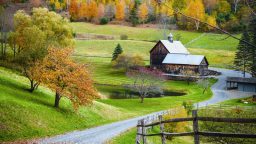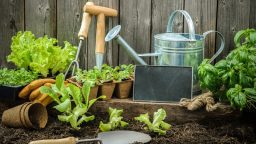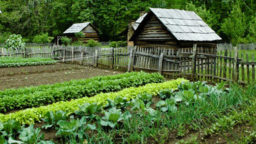Homesteading is the basic art of living off of the land. Homesteaders get their inspiration from the settlers who moved out west during the 1800s. They had to do things themselves because there were no cities, town, or even villages yet. Everything had to be transported out there by the homesteaders, from the livestock that they raised to the plant seeds that they used to grow food. Thankfully, some things have changed over the centuries, and modern homesteaders are no longer limited by the constraints of the past. There are plenty of high tech tools that they can take advantage of. Here are seven of them
1) Rain Barrels
Water is very important. Every homesteader needs access to plenty of uncontaminated water for a number of different purposes. Rain barrels are one great tool that can help. While the wells on a homesteader’s land can produce drinking water, what about the plants? Rather than waste drinking water on them, set up some rain barrels and collect the water as it falls from the sky. Place rain barrels around your house, near your gutters, so that the water flows into them during a storm. This is a great way to collect water for various non-consumption purposes.
Related Article: DIY Rain Barrel System
2) Install Solar Panels
If you want to live off of the grid as much as possible, then you’ll need to take advantage of alternative ways to produce electricity. Solar panels are just one of the many options. These panels are placed on your house and they collect and store energy produced by the sun. The system connected to them switches the current from direct to alternating, and then it flows into your home’s electric panel where it powers everything within it.
Related Article: Solar Energy Options for Homesteaders
3) Wind Turbines
Speaking of alternative ways to produce electricity, wind turbines are a great option. The only issue is that you need to live in an area that has enough wind for them to work properly. Otherwise, you’ll have spent a lot of money on wind turbines that don’t do what you want them to. The best thing to do here is to have a company come out to check to see if your homestead is a good candidate. If it is, then you’ll be able to save even more money in the long run by taking advantage of alternative energy producing methods.
NEVER BUY NEW BATTERIES AGAIN…DO THIS>>>
4) Cell Phones
Your cell phone is a very useful high tech tool that can help you quite a bit on your homestead. For example, you can set up a security system and monitor it from your phone. If your livestock manages to get out, an alert will sound on your smartphone, and you’ll know right away that you need to get your cattle or pigs back into the pen.
5) Solar Ovens
We’ve already discussed solar panels in general, but what about solar ovens? These ovens sit outdoors and aren’t connected to your electrical system at all. Instead, they receive their power from the sun, thanks to their built-in solar panels. If you really want to cook off the grid, then this a very useful option. You’ll find that they work just as well as standard ovens.
6) Aquatic Livestock
This is one thing that many homesteaders don’t think about. Aquatic livestock, like fish that are essentially raised in tanks on a farm, plays a crucial role in an aquaponic system. They purify the water that standard livestock drink, and so on. The entire plan here is symbiosis.
Suggested: DIY Aquaponics… “Break-through Organic Garden Secret”
7) Yurts and Instant Homes
If you truly want to create a homestead in a quick manner, then consider purchasing an “instant home.” These homes are compact and easy to set up, as they contain everything that you need, except for furniture. You can even make an instant home out of an old shipping container if you’re feeling particularly creative.



